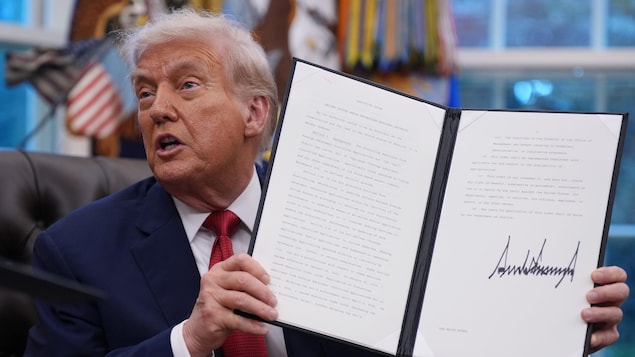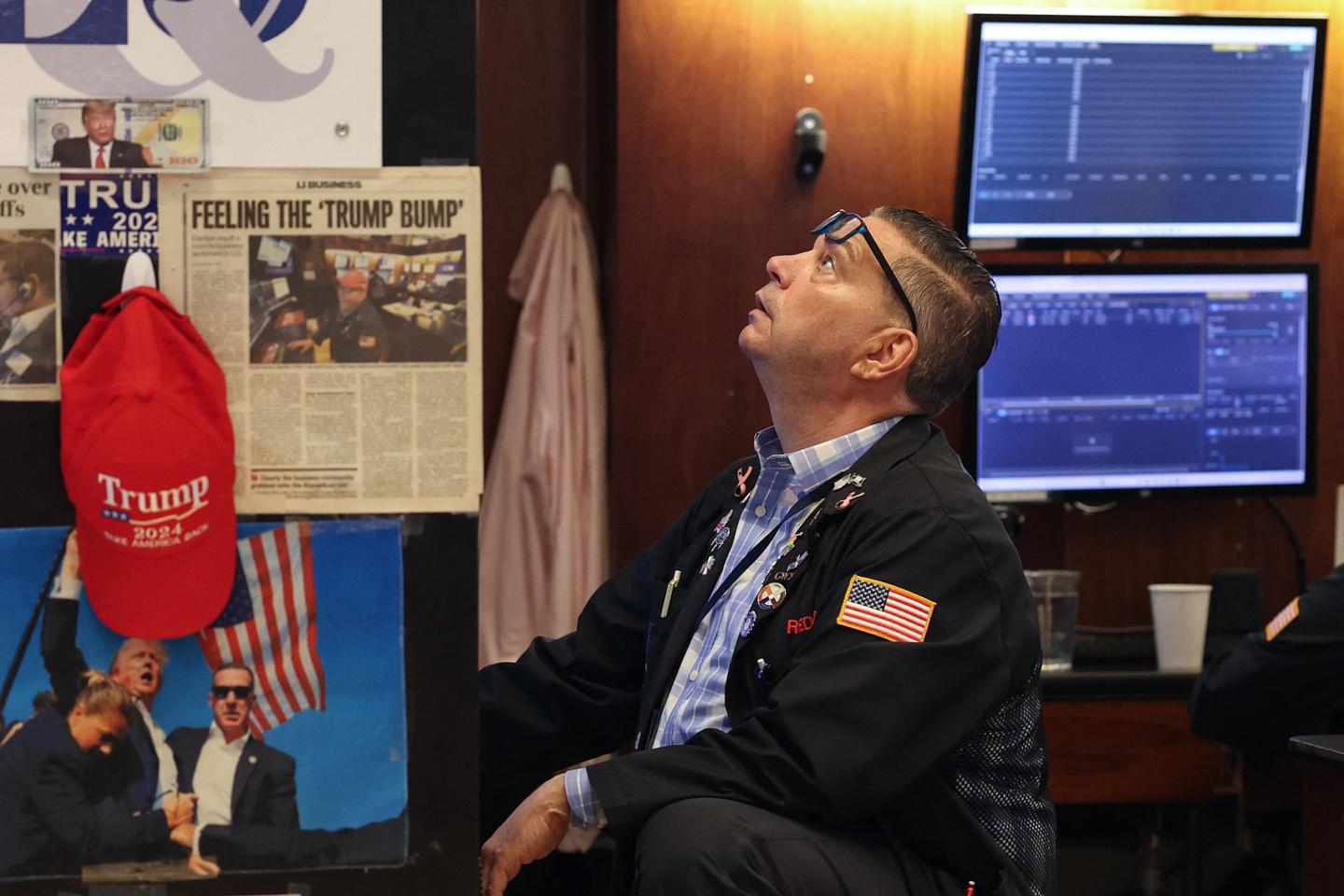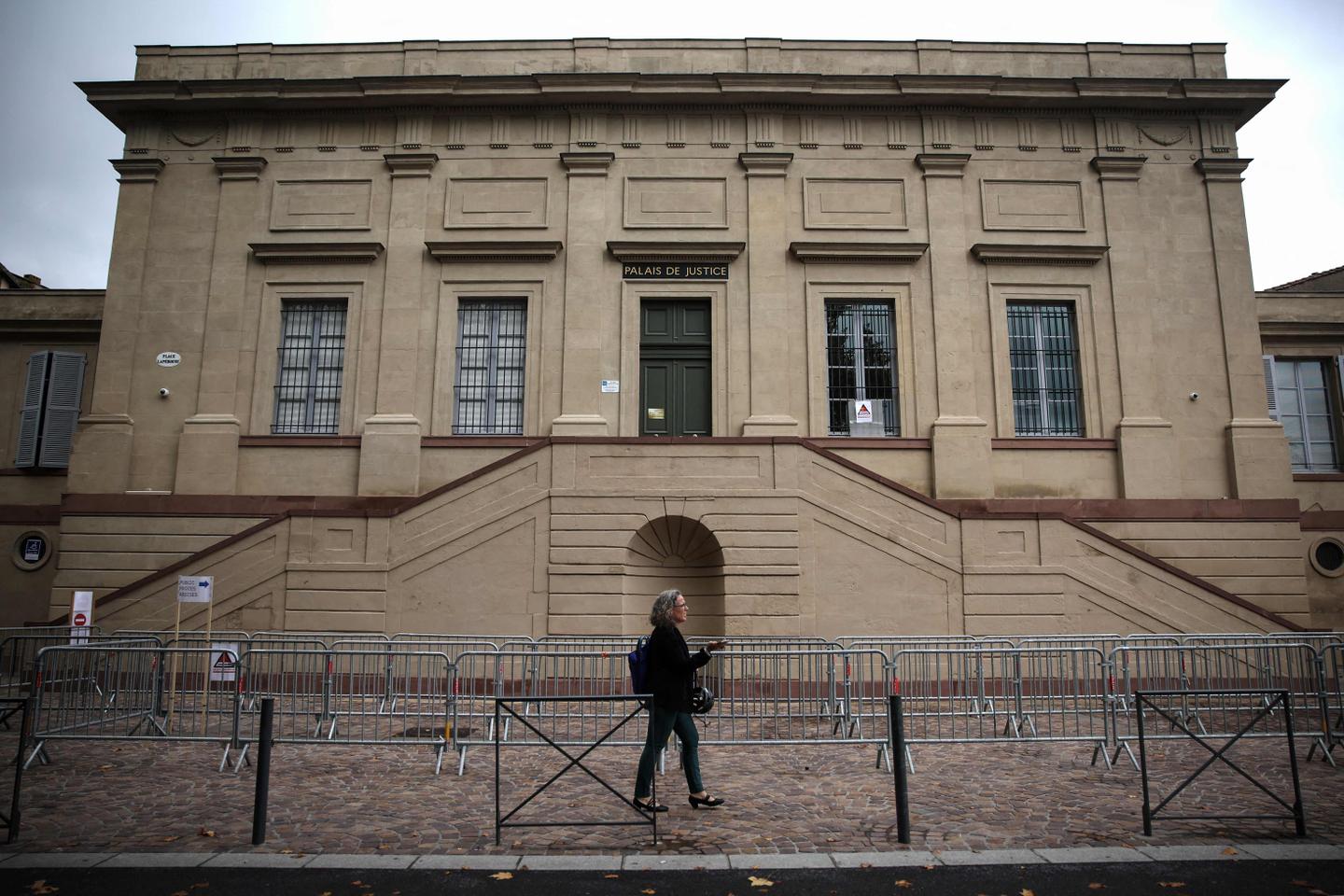U.S. President Donald Trump said Thursday that he will put import taxes of 100 per cent on pharmaceutical drugs, 50 per cent on kitchen cabinets and bathroom vanities, 30 per cent on upholstered furniture and 25 per cent on heavy trucks starting on Wednesday.
The posts on his social media site Truth Social did not mention whether the new levies would stack on top of existing national tariffs, but illustrated that Trump's devotion to tariffs did not end with the trade frameworks and import taxes already launched this year, including a Liberation Day announcement in April that sent markets reeling.
Additional tariffs risk intensifying U.S. inflation that is already elevated, as well as slowing economic growth, as employers getting used to Trump's previous import taxes grapple with new levels of uncertainty.
We have begun to see goods prices showing through into higher inflation, Federal Reserve chair Jerome Powell warned in a recent news conference.
The consumer price index has increased 2.9 per cent over the past 12 months, up from an annual pace of 2.3 per cent in April, when most tariffs kicked in.
Powell added that higher costs for goods account for most or potentially all of the increase in inflation levels this year.
There's no inflation, Trump told reporters Thursday. We're having unbelievable success.
The tariffs add another challenge for countries still negotiating trade deals with the Trump administration, including Canada and Mexico.
In June, Trump doubled his tariffs on steel and aluminum to 50 per cent. While the tariffs apply to all imports, Canada is the top supplier of both metals to the U.S.
Trump also upped tariffs in August on goods not compliant with the existing Canada-United States-Mexico Agreement (CUSMA) to 35 per cent and added a 50 per cent tariff on certain copper imports.
'Unfair, unjustified'
Pascal Chan, vice-president for strategic policy and supply chains at the Canadian Chamber of Commerce, warned that the pharmaceutical tariffs could harm Americans' health with immediate price hikes, strained insurance systems, hospital shortages, and the real risk of patients rationing or foregoing essential medicines.
Tax credits that have made health insurance more affordable in the U.S. are already slated to expire at the end of the year without intervention and are a sticking point as a potential government shutdown looms next week. The credits have applied to low- and middle-income people who purchase health insurance through the Affordable Care Act.
Stocks of pharmaceutical companies across Asia fell on Friday as investors reacted.
WATCH | Poilievre criticizes Carney as confusion on counter-tariffs emerges:
Début du widget . Passer le widget? Fin du widget . Retour au début du widget?
Carney dropped more counter-tariffs than he said he would
September 25Duration2:25Prime Minister Mark Carney said in August that counter-tariffs would be removed on U.S. goods ‘specifically covered under CUSMA.’ But a notice quietly posted online shows Canada removed all retaliatory tariffs, meaning Canada’s policy is not exactly reciprocal, as the government suggested.
In Australia, Health Minister Mark Butler told reporters the government was working to understand the implications of the new unfair, unjustified tariffs after 20 years of free trade.
Trump said on Truth Social that the pharmaceutical tariffs would not apply to companies that are building manufacturing plants in the United States, which he defined as either breaking ground or being under construction. It was unclear how the tariffs would apply to companies that already have factories in the U.S.
The Pharmaceutical Research and Manufacturers of America, an industry group, said companies continue to announce hundreds of billions in new U.S. investments. Tariffs risk those plans.
In 2024, America imported nearly $233 billion US in pharmaceutical and medicinal products, according to the Census Bureau.
U.S. Chamber warned against truck tariffs
Trump said that foreign-made heavy trucks and parts are hurting domestic producers.
Manufacturers such as Peterbilt, Kenworth, Freightliner, Mack Trucks, and others, will be protected from the onslaught of outside interruptions, he wrote.
The U.S. Chamber of Commerce earlier urged the department not to impose new truck tariffs, noting the top five import sources are Mexico, Canada, Japan, Germany and Finland, all of which are allies or close partners of the United States posing no threat to U.S. national security.
The new tariffs on cabinetry could further increase the costs for home builders when many people seeking to buy a house feel priced out by the mix of housing shortages and high mortgage rates.
With respect to furniture, about 60 per cent of imports in 2024 came from Vietnam and China, according to Furniture Today, a trade publication.
WATCH | Tough balancing act for central bankers:
Début du widget . Passer le widget? Fin du widget . Retour au début du widget?
Why cut interest rates during inflation? | About That
September 17Duration11:55Central banks typically raise interest rates to get prices under control during times of inflation, but the Bank of Canada and the U.S. Federal Reserve just cut rates. Andrew Chang explains how Trump's tariffs and a slumping job market led to the same inflection point for the countries' duelling economies. Images provided by Getty Images, The Canadian Press and Reuters.
Trump said that foreign manufacturers of furniture and cabinetry were flooding the United States with their products and that tariffs must be applied for National Security and other reasons.
Trump's administration has played down the impact on consumer prices and touted tariffs as a significant revenue source, with Treasury Secretary Scott Bessent saying Washington could collect $300 billion US by the end of the year.
There is scant evidence that the tariffs are creating factory jobs or more construction of manufacturing facilities. Since April, the U.S. Bureau of Labour Statistics has reported that manufacturers cut 42,000 jobs and builders have downsized by 8,000.
Trump did not provide a legal justification for the tariffs in his social media post.
His broader country-by-country tariffs earlier this year relied on 1977's International Emergency Economic Powers Act. Two federal courts said Trump's tariff policies exceeded his authority as president, but the Supreme Court will hear arguments on the matter in an early November session.
The Associated Press with files from CBC News and Reuters
[SRC] https://ici.radio-canada.ca/rci/en/news/2195341/trump-to-put-tariffs-on-cabinets-furniture-pharmaceuticals-and-heavy-trucks
 Visit the website
Visit the website



